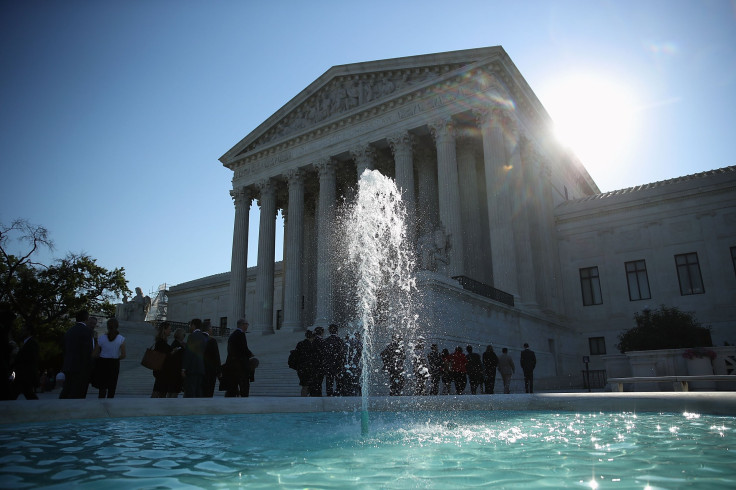Supreme Court Immigration Decision: 4-4 Tie Blocks Obama’s Executive Action Helping Immigrants

UPDATE: 11:55 a.m. EDT — U.S. President Barack Obama responded in a news conference Thursday to the Supreme Court's 4-4 tie that effectively blocked his executive action on immigration. The 4-4 split "takes us further from the country we aspire to be," Obama said.
The president criticized Congress for not holding a hearing on his nomination for the Supreme Court, Judge Merrick Garland, leaving the court without a full bench. Obama also stressed that the tie did not affect existing programs, but rather blocked the expanded immigration policies.
"Immigration is not something to fear," the president said. He criticized the "hypocrisy" of a system that lets people "pick our fruit" and "make our beds" but not get right with the law.
#Obama: "We don't have to wall ourselves off from those who may not look like us right now or pray like we do." pic.twitter.com/BRRGgE1XLc
— Fox News (@FoxNews) June 23, 2016
Original story:
The Supreme Court announced Thursday that it was deadlocked in a 4-4 tie in a decision Monday on the immigration policies of U.S. President Barack Obama. The decision effectively blocks Obama's action, allowing an appeals court decision to stand.
The case was heard in April and many expected the 4-4 tie on Obama’s 2014 Deferred Action for Parents of Americans and Lawful Permanent Residents. Thursday's ruling confirmed those predictions.
The so-called DAPA program would offer undocumented immigrants temporary relief from deportation and would grant temporary work permits to as many as 5 million people living in the U.S. illegally. Obama's DAPA program was an extension of his 2012 program that provided deportation relief to immigrants who were brought to the country when they were young.
BREAKING: Supreme Court blocks Obama immigration plan in 4-4 tie https://t.co/gZw46kenP8
— AP Politics (@AP_Politics) June 23, 2016
The president announced the high-profile moves in late 2014, but a federal court blocked them after Texas and 25 other states sued. Texas argued that DAPA causes harm to the state, saying it requires state government funds to provide driver's licenses to the undocumented immigrants. It April, it appeared the court was heading to a deadlock split along party lines following the February death of reliably conservative Justice Antonin Scalia.
Chief Justice John Roberts and Justice Samuel Alito seemed concerned during oral arguments about language that noted people in the program would be "lawfully present," which they argued would contradict immigration law, according to CNN.
"I mean, they're lawfully present, and yet, they're present in violation of the law?" Roberts said.
The more liberal justices seemed to side with the Obama administration. Justice Ruth Bader Ginsburg pointed out during oral arguments that there are some 11.3 million undocumented immigrants in the U.S. and that Congress has allocated funds to deport far fewer. "So inevitably, priorities have to be set," she said.
Some suggested Justice Anthony Kennedy, a conservative on most issues, could help the Obama administration win the case after he raised issues with the route Texas took in its attempt to invalidate the DAPA program. He suggested it should have challenged work-related regulations instead of the lawsuit attempting to end the program. But Kennedy also expressed concerns in April that Obama overstepped his executive authority.
© Copyright IBTimes 2024. All rights reserved.






















